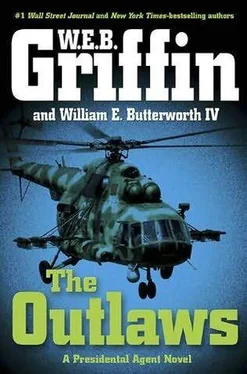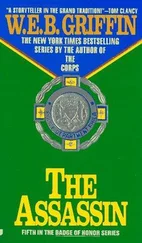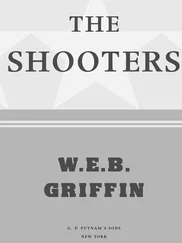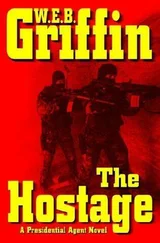W Griffin - The outlaws
Здесь есть возможность читать онлайн «W Griffin - The outlaws» весь текст электронной книги совершенно бесплатно (целиком полную версию без сокращений). В некоторых случаях можно слушать аудио, скачать через торрент в формате fb2 и присутствует краткое содержание. Жанр: Триллер, на английском языке. Описание произведения, (предисловие) а так же отзывы посетителей доступны на портале библиотеки ЛибКат.
- Название:The outlaws
- Автор:
- Жанр:
- Год:неизвестен
- ISBN:нет данных
- Рейтинг книги:3 / 5. Голосов: 1
-
Избранное:Добавить в избранное
- Отзывы:
-
Ваша оценка:
- 60
- 1
- 2
- 3
- 4
- 5
The outlaws: краткое содержание, описание и аннотация
Предлагаем к чтению аннотацию, описание, краткое содержание или предисловие (зависит от того, что написал сам автор книги «The outlaws»). Если вы не нашли необходимую информацию о книге — напишите в комментариях, мы постараемся отыскать её.
The outlaws — читать онлайн бесплатно полную книгу (весь текст) целиком
Ниже представлен текст книги, разбитый по страницам. Система сохранения места последней прочитанной страницы, позволяет с удобством читать онлайн бесплатно книгу «The outlaws», без необходимости каждый раз заново искать на чём Вы остановились. Поставьте закладку, и сможете в любой момент перейти на страницу, на которой закончили чтение.
Интервал:
Закладка:
"I was speaking with the colonel, Parker," the President said unpleasantly.
"Mr. President, if the colonel can assure us that there is no immediate danger to the public, I think-to counter that comment of C. Harry Whelan, Jr., on Wolf News-you should make a statement to that effect. And as soon as possible. Immediately. We really have to control this before it gets out of hand."
The President glared at Parker.
"Mr. President," Ambassador Montvale put in, "I think Porky's right."
Parker glared at Montvale, which wasn't lost on the President.
"What do you think I should say, Porky?" Clendennen asked.
"Mr. President, if you make any statement, it carries great importance. I mean to suggest that it will give the impression that this situation is more serious than the colonel suggests it is."
"In other words, you want to make the statement?"
"That would be my recommendation, Mr. President."
"I agree with Porky," Ambassador Montvale said.
"That makes it twice, doesn't it?" the President asked, and then went on: "And what would you say, Parker?"
"Sir, something along the lines of this: 'There was an incident early this morning at Fort Detrick that has attracted a good deal of media attention. The President has just spoken with the chief scientific officer at Fort Detrick, who has assured him there is no cause for concern. What it was was the routine triggering of a safety system, erring on the side of caution. To repeat, there is no cause for concern.' Something like that, Mr. President."
The President was thoughtful for a long moment. Then he asked, "Read that back, please."
A female voice came over a loudspeaker and recited Parker's suggested statement.
"At the end of the first sentence, where it says 'has attracted a good deal of media attention,' strike that and change it to 'has apparently caused much of the media to start chasing its tail once again. Arf-arf.' The rest of it is fine. Type that up for Mr. Parker."
"Are you sure you want to do that, Mr. President?" Secretary of State Natalie Cohen asked.
The President ignored her, and gestured for Parker to leave the office. Then he turned to Hamilton.
"Okay, Colonel. Now let's have the bad news."
Hamilton inhaled audibly before he began to speak.
"I think we have to presume, Mr. President, that the attack on the establishment-the laboratory-slash-manufacturing facility-in the Congo was not successful. There is a quantity-I have no idea how much-of Congo-X in unknown hands."
"How do you know that?" the President asked, softly.
"Because a quantity of it-several kilograms, plus another several kilograms of infected tissue-was delivered to me at Fort Detrick this morning. It is identical to the Congo-X and the infected tissue I brought out of the Congo."
"Where did it come from?" the President asked, then interrupted himself: "No. Tell me what this stuff-Congo-X-is and what it does."
"I don't know what it is. I'm working on that. As to what it does, it causes disseminated intravascular coagulation, acronym DIC."
"And can you tell me what that means? In layman's terms?"
"DIC is a thrombohemorrhagic disorder characterized by primary thrombotic and secondary hemorrhagic diathesis, usually fatal."
"Try it again, Colonel," the President ordered, not unpleasantly, "and this time in layman's terms."
"Yes, sir. DIC is sometimes called consumptive coagulopathy, since excessive intravascular coagulation leads to consumption of platelets and nonenzymatic coagulation factors-"
The President interrupted Hamilton by holding up his hand and shaking his head.
"You might as well be speaking Greek, Colonel. Try it again, please, keeping in mind that you're dealing with a simple country boy from Alabama."
"Yes, sir," Hamilton said, paused in thought, and then announced, almost happily: "Sir, DIC causes coagulation to run amok."
"Coagulation, as in blood?"
Hamilton nodded.
"Go down that road, Colonel, and see where it takes us," the President said.
"Coagulation is the process, in this connection, which causes liquid human blood to turn into a soft, semisolid mass."
He looked at the President to see if the President was still with him.
The President responded by smiling encouragingly, and making a gesture with both hands for him to continue.
"If you think of the vascular system of the body, Mr. President, as a series of interconnected garden hoses, and of the heart as a pump that pushes blood through that system."
He paused to see if his student was still with him, and when the President nodded, went on: "Imagine, if you will, sir, that the blood is transformed into a very thick mud. The pump cannot push the mass through the vascular system. It is overwhelmed; it stops."
"And death occurs? By what a layman might call a heart attack?"
"That, too, Mr. President," Hamilton said.
"'That, too'?" the President parroted.
"The mud, the now-coagulated blood, then begins to attack the garden hose. As sort of a parasite. It feeds on it, so to speak."
"Eats it, you mean?"
Hamilton nodded. "And when it's finished, so to speak, with the vascular system, it begins to feed on the other tissues of the body. In some sort of unusual enzymatic manner, which I have so far been unable to pin down."
"You'd better run that past me again, Colonel," the President said. "'Enzymatic manner'?"
Hamilton considered for a moment the level of knowledge the President might have.
"Think of meat tenderizer, Mr. President. Do you know how that works?"
"I can't say that I do," Clendennen confessed.
"Meat-and that would of course include human flesh-is held together by a complex protein called collagen. This makes it quite tough to chew in the raw state."
"I've noticed," the President drawled dryly.
"Cooking destroys these proteins, making the meat chewable. But so does contact with certain enzymes, most commonly ones extracted from the papaya. These proteolytic enzymes break the peptide bonds between the amino acids found in complex proteins. Such as flesh."
"What you're saying is that Congo-X is some sort of meat tenderizer?" the President asked. "Why is that so dangerous?"
"Unlike the enzymatic tenderizers one finds in the supermarket, which lose their strength after attacking the peptide bonding between the amino acids of meat, the Congo-X enzymes-if they are indeed enzymes, and I am not yet prepared to make that call-seem to gather strength from the collagens they attack. In a manner of speaking, they are nurtured by it."
"What happens when they run out of meat?" the President asked, and then corrected himself: "Out of something to eat?"
Hamilton didn't answer directly.
"Grocery store tenderizer doesn't work on bones," he said. "Congo-X does. Whenever it finishes turning the meat into sort of a mush-perhaps strengthened by taking nutrition from that process-it attacks bones. They are turned into mush. When the entire process is completed, what is left is a semisolid residue, which then enters sort of a coma. Forgive the crudeness, Mr. President, but what remains bears a strong physical resemblance to what one might pass when suffering from diarrhea: a semisolid brown, or brownish black, mass."
"And what happens to that?"
"It apparently receives enough nutrients from the atmosphere to maintain life-I hesitate to use that term but I cannot think of another-for an indefinite period. If it is touched by flesh, the process begins again."
"The only way it is contagious, so to speak, is if there's physical contact with it? Is that what you're saying?"
"When it is in the dormant, coma stage, yes, sir. But when it is feeding, so to speak, on flesh, it gives off microscopic particles which, if inhaled, also start the degenerative process."
Читать дальшеИнтервал:
Закладка:
Похожие книги на «The outlaws»
Представляем Вашему вниманию похожие книги на «The outlaws» списком для выбора. Мы отобрали схожую по названию и смыслу литературу в надежде предоставить читателям больше вариантов отыскать новые, интересные, ещё непрочитанные произведения.
Обсуждение, отзывы о книге «The outlaws» и просто собственные мнения читателей. Оставьте ваши комментарии, напишите, что Вы думаете о произведении, его смысле или главных героях. Укажите что конкретно понравилось, а что нет, и почему Вы так считаете.











